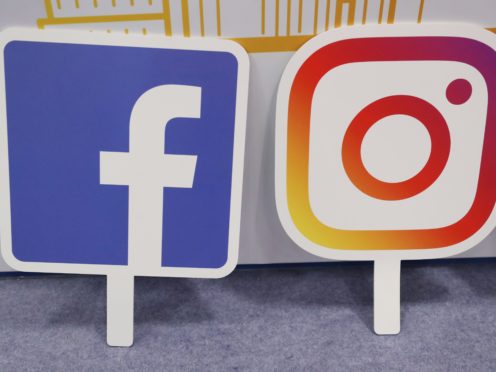Social media companies have agreed to help fund a new initiative to tackle self-harm content on their sites, following a summit in London, Health Secretary Matt Hancock has said.
He told MPs that tech giants including Facebook, Instagram and Twitter have pledged to work with the Samaritans on removing dangerous content.
Making a statement in the Commons, he said: “As a result of yesterday’s summit, the leading global social media companies have agreed to work with experts from the Samaritans, to speed up the identification and removal of suicide and self-harm content, and create greater protections online.
“They’ll not only financially support the work, but crucially, Samaritans’ suicide prevention experts will determine what is harmful and dangerous content, and the social media platform is committed to either remove it or prevent others from seeing it, and help vulnerable people get the positive support they need.”
Mr Hancock said social media firms “have a duty of care” to their users, and said after high-profile cases of teenagers who have committed suicide after viewing harmful content “for all of us this is very close to home”.
He cited the Government’s recently-published Online Harms White Paper, which outlines a “new statutory duty of care” for social media companies, requiring them to take more action to protect users from harmful content, overseen by an independent regulator.
Mr Hancock said the social media summit on Monday also covered the spread of anti-vaccination misinformation, which he said can have “devastating consequences”.
He said there are “few inventions that have reduced human misery so much” as vaccinations.
The Government has accused Wikipedia of “shirking their social responsibilities” after they failed to attend a summit on harmful content online.
Mr Hancock said the internet giant will be written to in “robust terms” after its failure to attend the summit.
Shadow health secretary Jonathan Ashworth said his own search had found images of graphic self-harm and videos, plus pro-anorexia posts and the normalisation of eating disorders, adding: “Dangerous content should be blocked and taken down.”
He said: “These social media platforms must be made to take responsibility for the harm and dangerous fake news they host, they are helping fuel a public health crisis.”
Mr Ashworth said he had also found “dangerous” anti-vaccination propaganda on social media, adding: “I think we need a clear vaccination action plan urgently from the Government, this cannot be about penalising families.”
Public Health England, he added, could launch an online social media campaign to challenge “dangerous anti-vax myths”.
Mr Ashworth called on the Government to commit to “reversing public health cuts”.
He said: “Falling vaccination rates are not just about online activity, public health services have been cut by £800 million, our health visitors have been cut by 8% in recent years, our school nurses are down 24% in recent years.”
SNP health spokeswoman Dr Philippa Whitford asked when any regulator would be established, adding: “It’s still in the long grass and I think it is urgent.”
Labour chairwoman of the Home Affairs Committee, Yvette Cooper, said it was time to do “much more” on algorithms, which she said were “pushing people into more and more extreme behaviour”.
She said: “This is their algorithms that for profit are pushing people to the extremes, surely it’s time (for) much greater transparency and accountability on their entire business model and the way that they are promoting all sorts of problems.”
Mr Hancock said: “It’s only by the social media companies changing their own algorithms that we can make this happen and this is why I think the new regulator is so important.”
He added the next meeting would reconvene in two months: “It’s very important that we keep the pace up so we will expect in two months time that we’ll see further action from the social media companies.”
